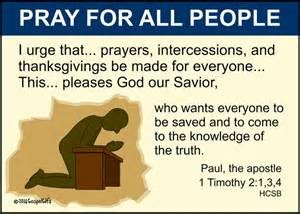



In the huge pile of mail that greeted me upon my return from Trinidad a couple of weeks ago, was a letter from our Bishop, John Schol. Dear Catherine, it began, I understand you are preparing for next year’s full member retreat and examination. You have already been affirmed in your calling and have been leading people to make disciples and grow vital congregations to transform the world, Thank you. A quick glance through the rest of the letter assured me I wasn’t in any trouble – whew! The Bishop actually wrote to offer me words of hope, admonition, encouragement, and support in advance of my upcoming ordination assessment period. His closing words – “Keep the Faith! John.”
When spiritual overseers write to the pastors under their care, their words carry great import for good or for ill. I’d like to think Pastor Timothy felt at least as supported and cared for when he received his letter from his Bishop, Paul, as I felt when I received this letter from my Bishop, John. Bishops or spiritual overseers tend to be rich in faith, grounded in the Scriptures, and seasoned in life and ministry experiences; any instruction they give to those under their care could very well be the Word of the Lord to the minister and to the church.
So we are fortunate this morning to hear this Word from the Lord as we peer over Timothy’s shoulder, reading what his Bishop had to say as he offered words of instruction and administrative guidance to this young leader of the well-established church in Ephesus. Ephesus was a bustling, commercial metropolis in Western Asia Minor; we now call that region Turkey. Paul had left young Timothy in charge of this urban congregation, where philosophical and theological issues were beginning to pose a threat to the faith. So Paul did some fairly close mentoring and coaching in both letters to the young Pastor. In this first letter, just prior to where we begin reading, Paul gives the same exhortation to Timothy as John Schol gave to me – hold on to faith, he says. Hold on to faith and a good  conscience. Then he proceeds to suggest how: First of all, I urge that supplications, prayers, intercessions, and thanksgivings be made…The Message Bible translation – which provided the title for today’s sermon – puts it this way, The first thing I want you to do is pray. Pray every way you know how, for everyone you know. The slightly nuanced differences between supplications, prayers, intercessions, and thanksgivings don’t really warrant separating them into discrete categories of prayer. It was the writer’s way of saying, pray every way you know how.
conscience. Then he proceeds to suggest how: First of all, I urge that supplications, prayers, intercessions, and thanksgivings be made…The Message Bible translation – which provided the title for today’s sermon – puts it this way, The first thing I want you to do is pray. Pray every way you know how, for everyone you know. The slightly nuanced differences between supplications, prayers, intercessions, and thanksgivings don’t really warrant separating them into discrete categories of prayer. It was the writer’s way of saying, pray every way you know how.
In our Christian tradition, to pray is essentially to talk to God. If God does not factor into this faith-building practice, we may as well call it a pious little monologue. Furthermore, if God is not expected to have something to say in response to our petitions, supplications, intercessions, or thanksgivings, then…what can I say? You probably know how it feels to have a conversation with someone where you couldn’t get a word in edgewise to save your  life? Granted, God’s response in the conversation may take all kinds of delightful or terrifying forms, but that calls for the kind of discernment we only get by the act of prayer, by practicing to pray. Prayer is a conversation; it is being in a place of God-awareness. Keep the faith, Paul tells Timothy; hold on to faith by first of all praying.
life? Granted, God’s response in the conversation may take all kinds of delightful or terrifying forms, but that calls for the kind of discernment we only get by the act of prayer, by practicing to pray. Prayer is a conversation; it is being in a place of God-awareness. Keep the faith, Paul tells Timothy; hold on to faith by first of all praying.
You might be saying, “but I don’t know how to pray.” You probably have in mind the eloquent prayers given by clergy or other spiritual leaders in worship. I am happy to clarify that verbal prayer is only one of many, many ways to pray. “How do you pray?”
